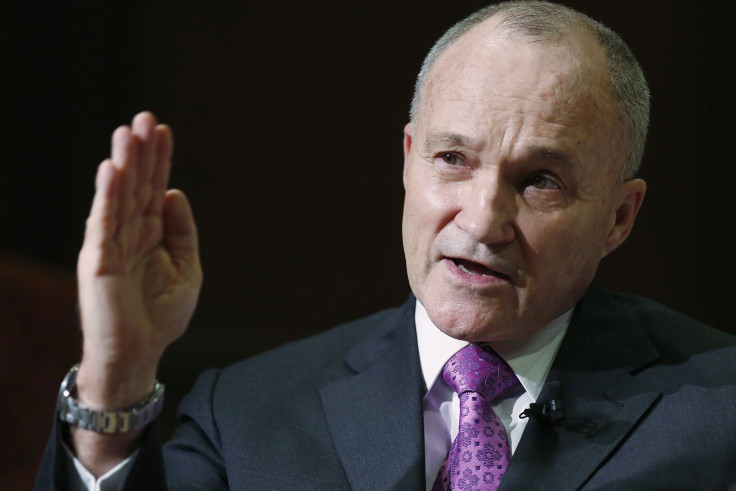Why Obama's New Darling Ray Kelly Should Stay Out Of Washington

President Barack Obama and NYPD Police Commissioner Ray Kelly’s surprising courtship has led to a great deal of excited Beltway chatter over the past few days, but it should be seen for what it is: scary and strange.
Obama fawned over New York’s top cop last week, going so far as to float his name and the title of Department of Homeland Security Secretary in the same sentence.
“Mr. Kelly might be very happy where he is, but if he's not I'd want to know about it, because obviously he'd be very well qualified for the job,” Obama told Univision’s New York affiliate last week, adding that Kelly has done an “extraordinary job” as NYPD commissioner, Politico reported.
Kelly responded Tuesday on MSNBC’s “Morning Joe,” by offering the following non-response: “Well, I’m flattered by the comments coming from the president, but I’m not making any other comment.”
The overtures from Washington -- which bring back memories of the unsuccessful wooing of Mayor Michael Bloomberg by well-heeled politicos who wanted to see the billionaire technician run for president -- raise Kelly’s status even higher than it already is, and that’s a dangerous thing.
Kelly, who has admittedly done a stellar job of keeping New York City terrorism-free since Sept. 11, represents more than just a strong, numbers-focused law enforcement pioneer. He’s also one of this country’s most dedicated and high-profile innovators in dubious fields including racial profiling tactics, violating basic rights, and violently crushing dissent.
His resume includes the continued implementation of his predecessor William Bratton’s remarkably efficient CompStat system, his record of stopping terror dead in the city, and massive crime reductions across the five boroughs.
But it also includes the offensive and likely unconstitutional “Stop and Frisk” program, which directs police officers to search vast numbers of city residents -- mainly minorities in poorer areas -- based on vague suspicions. The searches overwhelmingly turn up no contraband, and have come under increasing fire for being counterproductive as they breed bad blood between police and the people they are supposed to be serving.
Another key moment in Kelly’s tenure at the helm of the nation’s largest municipal police force was his presiding over the takedown of the Occupy Wall Street encampment in Manhattan’s Zuccotti Park.
The now-iconic space was filled for a short period of time with a wide range of people united in their belief that something needed to be done to right the economic injustice perpetrated against the American people by Manhattan’s captains of finance.
But that came to an abrupt end when Kelly moved in unannounced under the cover of night, directing his officers to clear the protesters -- many of whom were arrested -- and destroy most of their belongings.
It was a classic case of police overreach, and one that reinvigorated (for a time at least) a movement that was waning in its influence. And it was a symbol of what Kelly is capable of if he were to be selected to replace outgoing Homeland Security Secretary Janet Napolitano, assuming he accepted the appointment.
Kelly, like Bloomberg, has been courted for higher office before, and many New Yorkers continue to implore him to run for mayor, a position many believe he would easily win. Still, his history is one of arrogance and disregard for inconveniences like the right to unreasonable search and seizure and the right to peacefully assemble.
In light of the revelations about the overreach of the National Security Agency and its massive surveillance apparatus, the last person we need to head up DHS is Kelly. Let’s hope he and Obama don’t turn their back-and-forth into anything more than a casual flirtation.
© Copyright IBTimes 2024. All rights reserved.











